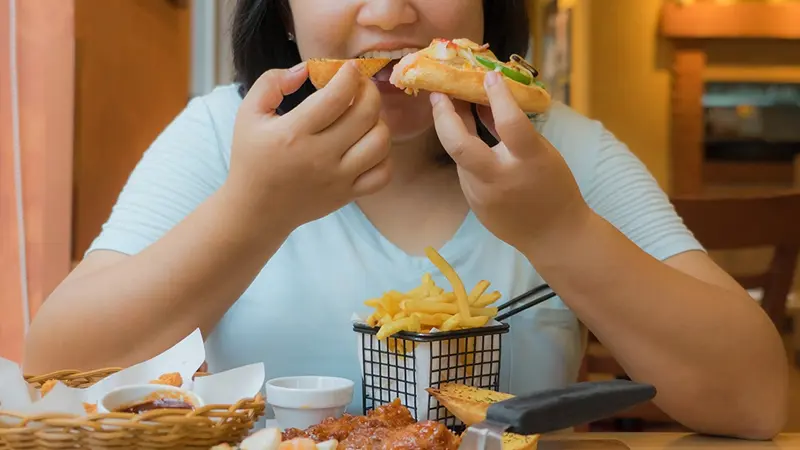Emotional or Stress Eating?
Emotional or stress eating occurs when you respond to stressful or difficult feelings by eating. It is using food to satisfy emotional needs, even when you are not experiencing physical hunger. It is reaching for ice cream when you are feeling down, ordering fast food if you are bored or lonely, or swinging by the drive-thru after a stressful workday. You often crave high-calorie or high-carbohydrate foods that have minimal nutritional value.
Nearly 40 percent of adults tend to overeat or eat unhealthy foods when they are stressed, according to the American Psychological Association. When your primary coping mechanism is to eat, you become stuck in an unhealthy cycle and the real feeling or problem is never addressed. No matter how powerless you feel over food and your feelings, it is possible to make positive changes.
How do you know the difference between emotional hunger and physical hunger? Emotional hunger starts in an instant and feels overwhelming and urgent. Physical hunger comes on more gradually. When you are physically hungry, almost anything sounds good; but emotional hunger often causes cravings for junk food and sugary snacks for an instant rush.
Emotional hunger often causes mindless eating. You may eat an entire bag of chips without paying attention or even fully enjoying it. Emotional eating may cause you to feel a lack of control or guilty for what you have eaten. Emotional hunger is not satisfied, even if you are full. You keep wanting to eat more. You feel it as a craving you cannot get out of your head rather than a growling belly or pang in your stomach.
Most emotional eating is linked to unpleasant feelings, but it can also be linked to positive emotions, such as rewarding yourself for achieving a goal or celebrating a holiday or happy event. It can also be triggered by feelings of boredom or emptiness. Emotional eating may also be driven by nostalgia, like memories of baking and eating cookies with your mom.
Eating with other people can relieve stress, but it can also lead to overeating simply because the food is there or because everyone else is eating. You may also overeat because you are nervous or your family or friends encourage it. Stress can also lead to eating. When stress is chronic, your body produces high levels of the stress hormone cortisol, which triggers cravings for salty, sweet and fried foods. The more uncontrolled stress in your life, the more likely you are to turn to food for emotional relief.
There are ways to manage emotional eating that do not involve food. If you are depressed or lonely, call someone that makes you feel better or play with your pet. If you are anxious, dance to your favorite song, squeeze a stress ball, or take a walk. If you are exhausted, drink a hot beverage, take a bath, or wrap yourself in a warm blanket. If you are bored, read a book, explore the outdoors, or turn to an activity you enjoy.
You can also help to manage emotional or stress eating by practicing mindful eating. Take a moment when a craving hits. Just tell yourself to wait. While you are waiting, ask yourself how you are feeling. Even if you end up eating, you will have a better understanding of why you ate. Learn to accept your feelings. This will allow them to have less control over you.
Weight Management: Pathways to Improving Your Health
Hattiesburg Clinic Weight Management will provide healthy tips and information each month. To be notified of an update via text message, opt in by texting the word WEIGHT to 57711.
